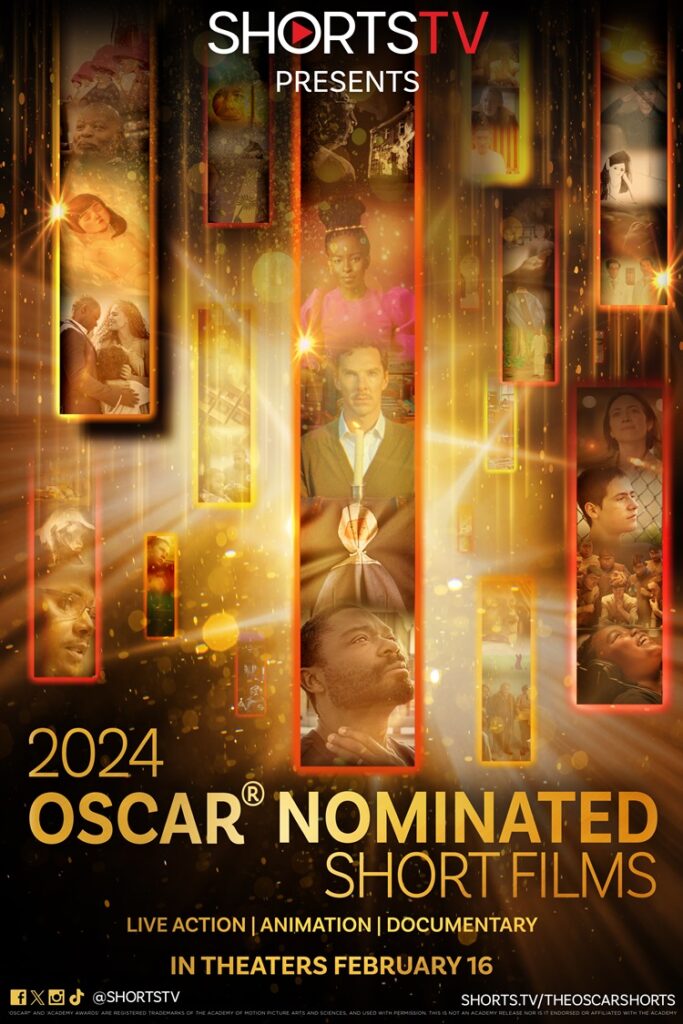
Starting February 16, the 19th annual Oscar Nominated Short Films will be available in over 700 theaters globally and in 75+ theatrical markets including New York and Los Angeles. This is the only opportunity for audiences to watch all of the short film nominees in theaters before the 96th Academy Awards ceremony on Sunday, March 10, 2024. To learn more about the participating theaters and how to purchase tickets which are now available, please visit www.shorts.tv/theoscarshorts. Each nominee is released in one of three distinct feature-length compilations according to their category of nomination: Live Action, Animation, or Documentary.
Buy Making it Big in Shorts: Shorter, Faster, Cheaper: The Ultimate Filmmaker’s Guide to Short Films bookThe nominees are:
Invincible (director Vincent René-Lortie; Canada; 30 min)
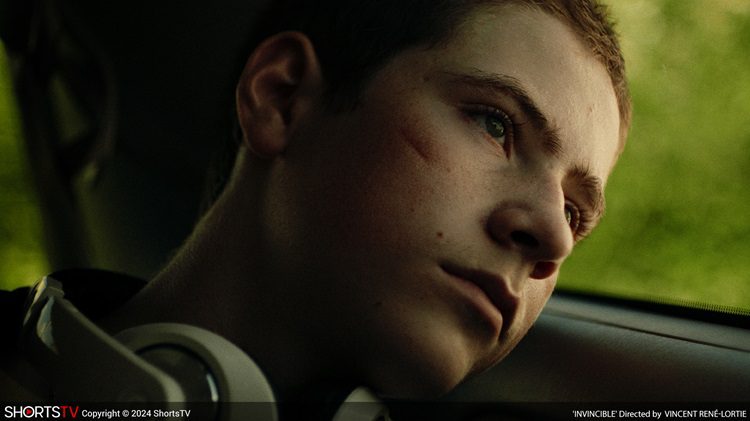
Inspired by a true story, Invincible opens with a young boy named Marc driving a car into a lake. Once in the water, the story flashes back. After a weekend with his family, Marc is dropped off at a juvenile detainment center. That reason he is there is not given, which is unfortunate. Maybe the filmmakers feel “why” doesn’t matter, but is he a victim of circumstance dealt an unfair hand by an unjust justice system, or is he being punished for something serious and the imprisonment deserving? He has been locked up a year and is in a constant state of rebellion. Starting with the end of Marc’s story is a distraction as the viewer keeps waiting for the outcome and thinking ahead rather than being in the moment with the character, unaware of what’s coming.
Knight of Fortune (director Lasse Lyskjær Noer; Denmark; 25 min)
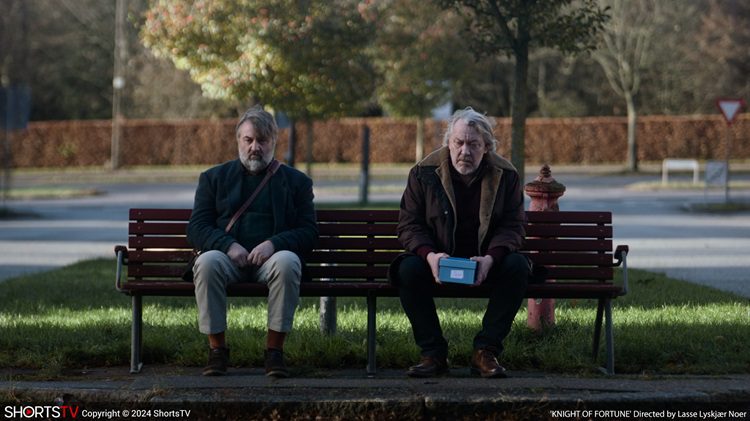
Karl Bergstrom is at the morgue due to the loss of his wife. Afraid to see her, he hides in the bathroom where he meets Torben, who has also lost his wife. Torben asks Karl to accompany him in seeing his wife’s body and Karl agrees. The two men bond while with Torben’s wife, but when a family comes in, Karl realizes Torben hasn’t told him the complete story. This creates great tension for the viewer as well because it’s unclear if this story about men dealing with grief is a comedy or a drama, and it could go either way, depending on how the family reacts. Noer’s script is very well written. He has created an intriguing story with authentic characters, who behave in believable ways, and a plot that has a satisfying ending.
Red, White and Blue (director Nazrin Choudhury; USA; 23 min)
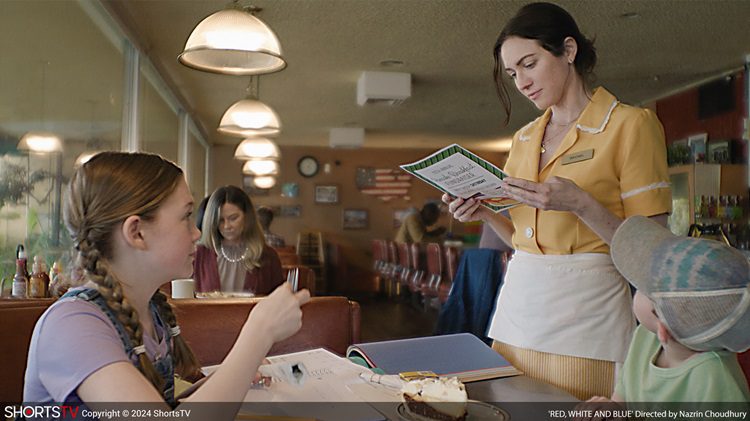
Rachel (Brittany Snow), single mother of two, can’t raise a third, especially considering how limited her wages as a waitress. A customer notices her looking forlorn at a pregnancy test, and gives her the cash to travel outside of Arkansas to Missouri to get an abortion. Rachel’s older, preteen daughter accompanies her on the trip in this powerful, topical story that hits hard when all the details are revealed.
The After (director Misan Harriman; UK; 18 min)
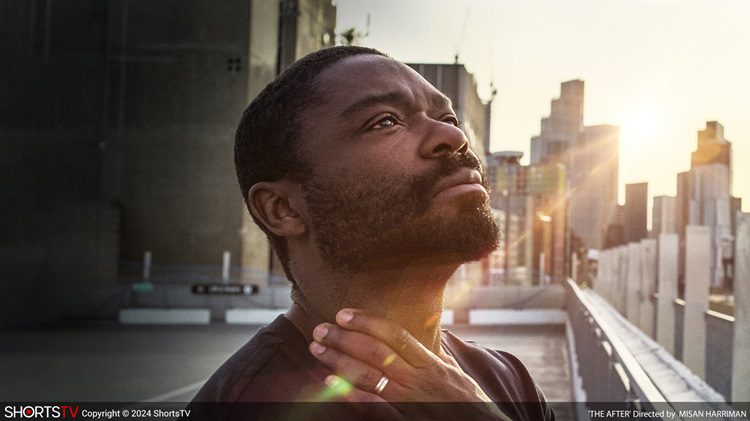
A year after a knife-wielding maniac caused the death of his daughter and wife in a killing spree, a man (David Oyelowo) has left his corporate job and works as a ride-share driver. He’s disconnected from life until he connects with a passenger. While nice enough, it suffers in comparison with Knight of Fortune, which is a much better story and film about dealing with grief.
The Wonderful Story of Henry Sugar (director Wes Anderson; UK, USA; 37 min)
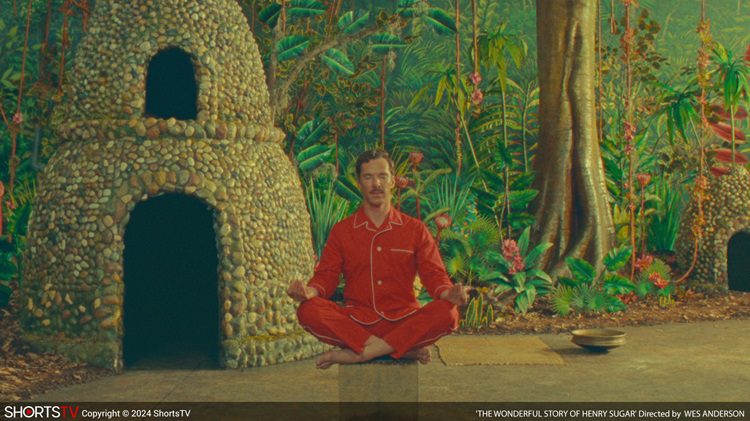
Roald Dahl (Ralph Finnes) tells the wonderful (and true) story of Henry Sugar, which is filled with other stories. Roald speaks directly to the camera as the story plays out as if on a proscenium stage. Henry (Benedict Cumberbatch) takes over narrating and tells of his finding “A Report on Imdad Khan (Ben Kingsley), The Man Who Sees Without His Eyes” by Dr. Z. Z. Chatterjee (Dev Patel) who takes over narrating as Henry reads his report. Imdad comes to the the hospital to have his eyes bandaged by professionals to ensure he’s not cheating when he performs his seeing act on stage. Chatterjee is amazed by the performance and wants to share Imdad’s story of how he obtained this skill. Imdad narrates his story about learning from the Great Yogi and developing his seeing ability in 20 years. Henry takes back the narration, telling of obtaining the ability to see without his eyes, which he planned to use to win fortunes at gambling. However, it wasn’t technically “gambling: as Henry was now ensured he would always win. Henry loses interest in winning money for himself and chooses to win on behalf of the less fortunate. After Henry’s death, Roald is approached to tell Henry’s story.
Anderson and his crew do an amazing job with this stunningly inventive film. The scenes are long takes of extraordinary puzzles that pieced together before the audience through use of actors, scenery, lighting, animation, and whatever else came to their minds.
Taking all the elements that go into the making of a film, The Wonderful Story of Henry Sugar is the best film of the nominees. The Academy has yet to give Anderson an Oscar, a reflection on the Academy not the talents of Anderson, so will they see this as their chance to finally bring him into their fold? Or has he had such a successful career already and his seemingly ability to get any film financed cause voters to reward an up-and-coming director who could use it for their career? If so, Red, White and Blue tells an important, frightening, topical tale that a majority of Academy voters could want to spotlight.